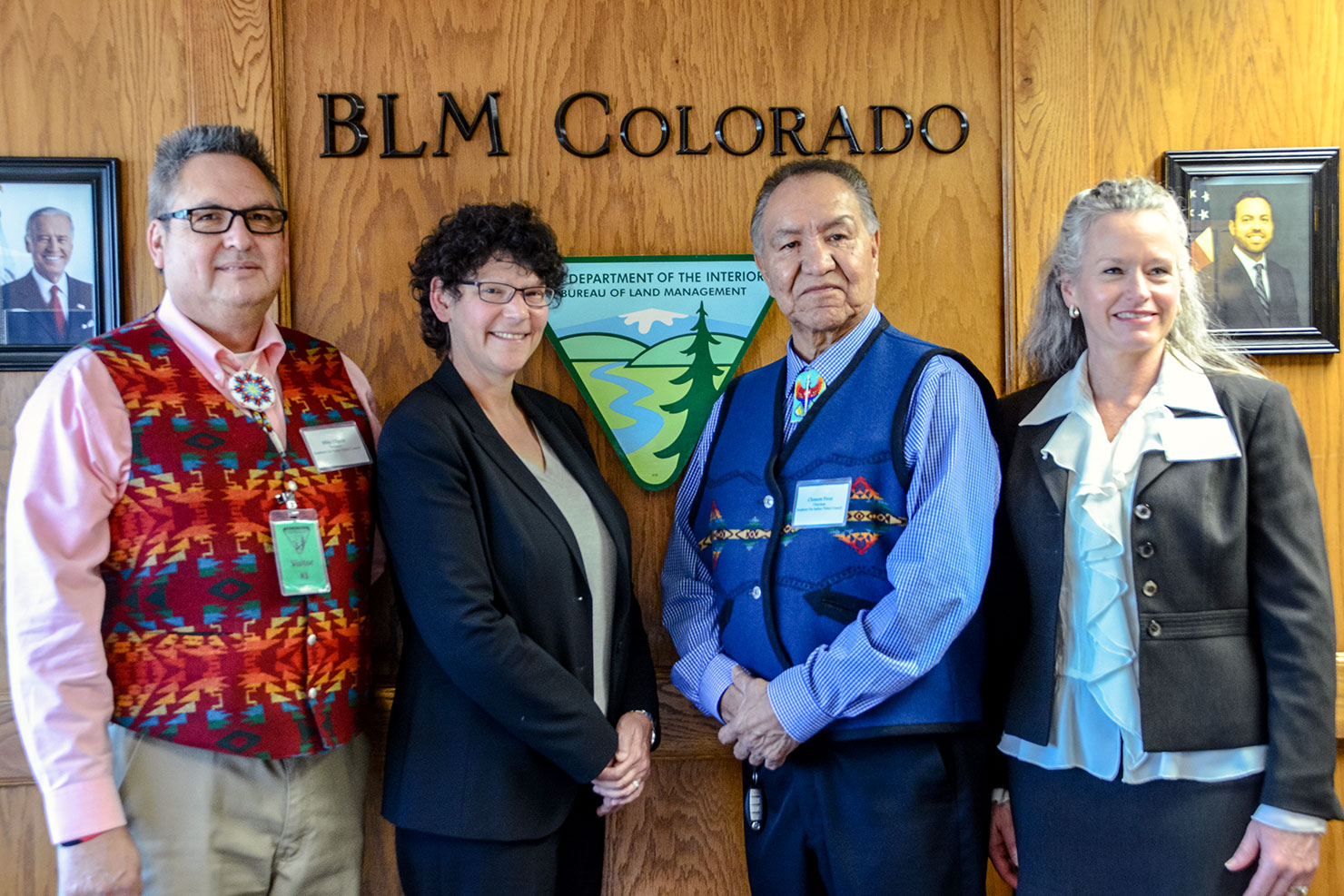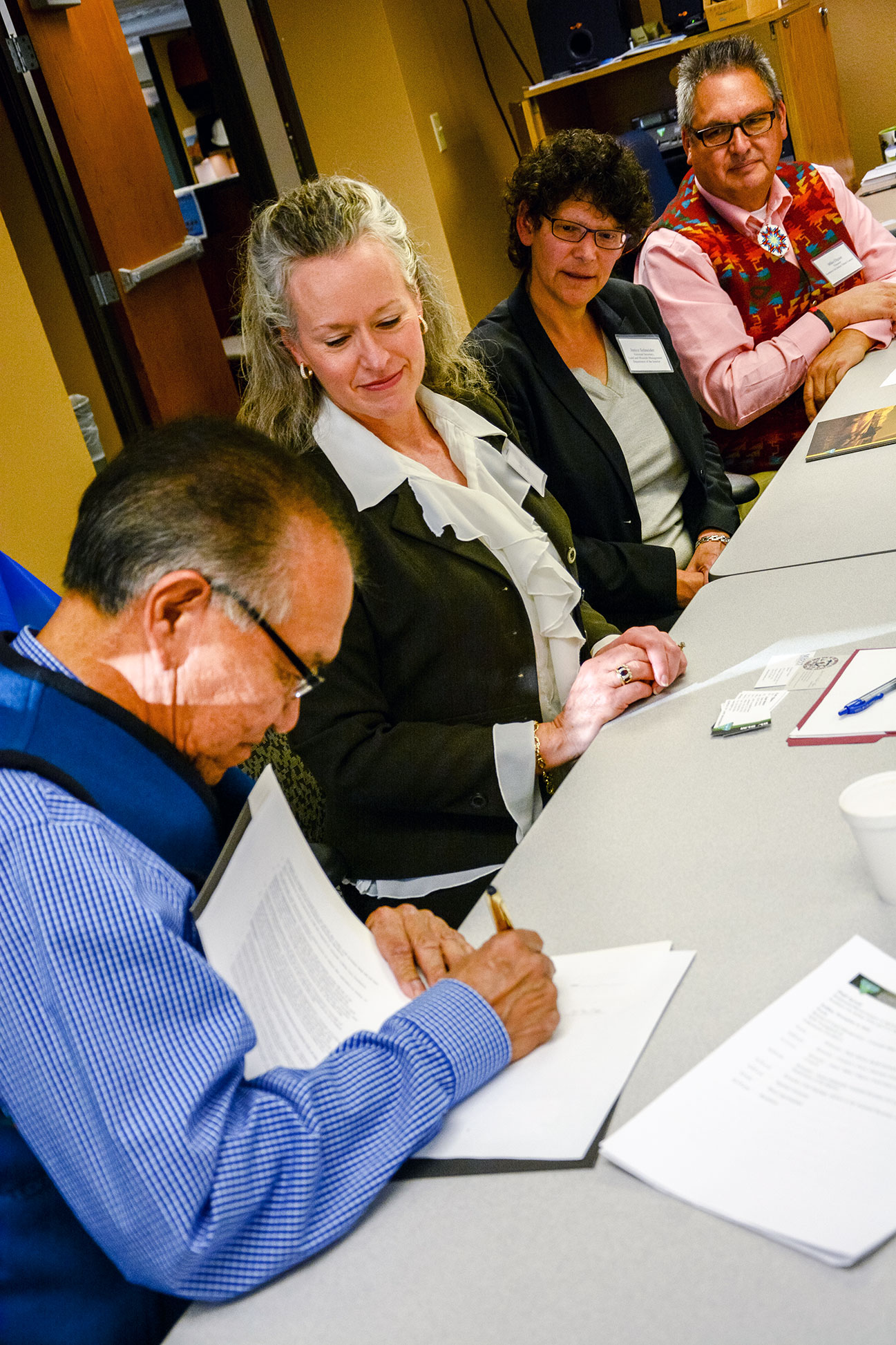The Southern Ute Indian Tribe, Department of Justice and the Bureau of Land Management met in Denver on Friday, Nov. 4 to finalize an agreement that says the Tribe has primary authority over hydraulic fracturing on the its own lands, bringing an end to litigation between the parties.
In 2015, the Tribe filed a lawsuit against the Department of the Interior challenging the BLM’s controversial fracturing rule. The Tribe argued that BLM’s rule ignored tribal input, including tribal concerns about certain technical requirements and about delays to the already slow-moving energy development process caused by requiring operators to file and obtain additional approvals before engaging in oil and gas operations.
“One of the Tribe’s main concerns was that the BLM rule treated tribal lands like public lands and paid little deference to the sovereign power of Indian tribes to govern their own lands,” Tribal Chairman Clement Frost said.
In exercising that sovereignty, Frost said the Tribe developed its own hydraulic fracturing regulations. In its complaint, the Tribe asserted that its regulations superseded the BLM’s regulatory authority over Southern Ute lands.
“Although the settlement we are signing today does not resolve all issues raised in the litigation we are pleased with this outcome and feel that it is an affirmation of our Tribe’s sovereignty,” he said. “Thank you for recognizing the sovereignty of the Southern Ute Indian Tribe.
In the settlement, the BLM acknowledges that the Tribe’s regulations meet or exceed the objectives of the BLM’s rule.
“We are confident that the Tribe’s hydraulic fracturing and chemical disclosure regulations are protective of the environment on our Reservation and that’s because they’re tailored to our Reservation,” Councilman James M. Olguin said. “In fact, in several ways, the Tribe’s regulations are more environmentally protective than the BLM’s regulations. The Tribe’s regulations strike the right balance between supporting economical development and environmental protection.”
Janice Schneider, assistant secretary for Land and Minerals Management Department of Interior, agreed with Olguin, reiterating the importance of the environment.
“Making sure were are conducting operations in an environmentally safe manner that is consistent and transparent with the communities in and around these operations is paramount,” Schneider said. “These are shared values that we all have.”
Schneider continued, “the Tribe, to its credit, has really stepped up and adopted its own regulations to ensure that its community is protected from these operations while still allowing very important activities for economic prosperity to move forward.”
Olguin thanked all those involved in the settlement and said he looks forward to strengthening the government-to-government relationship between the Tribe and the federal government.
“Now we will see this to fruition and see a settlement we are comfortable with, as the Southern Ute Tribe, developing what we feel is needed as a regulation to protect our own destiny and sovereignty and really set the stage for this relationship going forward,” he said.”Building relationships, that’s how you get things done. I feel very proud that we do come to the table with solutions and not just concerns and complaints.”




